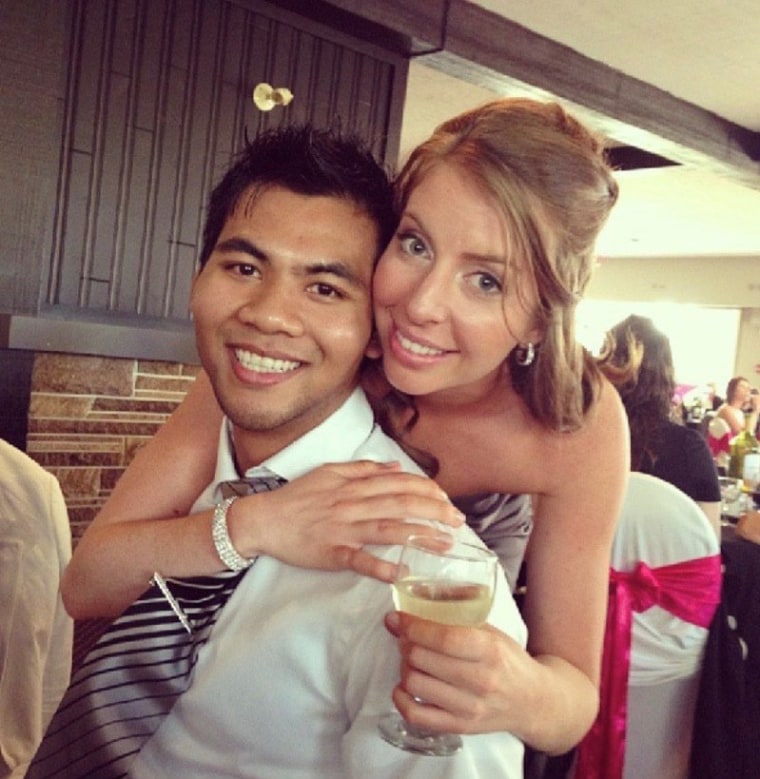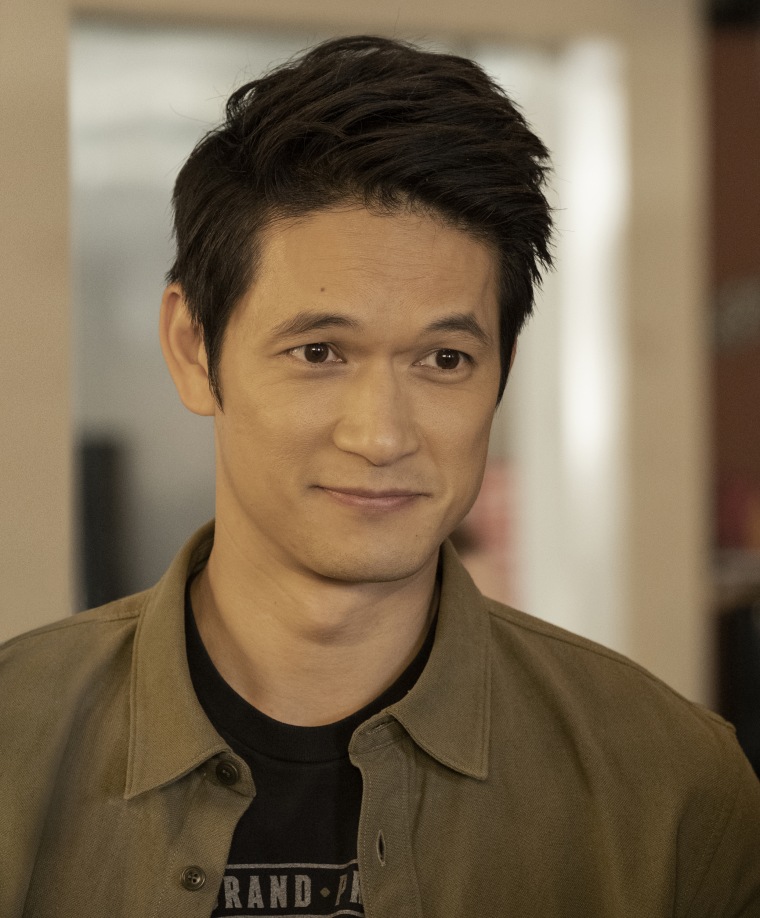Even though Asian men in romantic roles are a rare occurrence in Hollywood, actor Harry Shum said he didn’t feel a sense of shock when he was cast as Solomon Chau, the lead in “All My Life,” a romantic drama released in theaters, as opposed to streaming, this month. He’d paid his dues.
“I've done plenty of extra work, or literally I was that kid that was just striving for one line. ‘Just give me one line and I'll show you what I can do,’” he said.
Shum told NBC Asian America that it took 15 years to be given more than one line. And now, decades after he and other Asian American actors began moving steadily toward equity — sometimes taking on stereotypical roles to position themselves so they could push the boundaries of what defines an Asian American on screen— he’s at the center of a love story.
And he says it feels like it’s exactly where he’s meant to be.

“For me, it feels like a lifetime. I've also gotten faced with a lot of stereotypical roles,” he said. “For me it's always trying to flip it and trying to say, ‘OK, well, if this is what you are going to give me, then I'm going to alter it as much as I can, within my power, inches closer to the place I want it to be.”
While there is more work to do when it comes to representation, his role is still a victory. In the movie, based on a true story, Shum plays Chau, a young chef, newly engaged, who is diagnosed with terminal liver cancer. Chau and his beloved partner, Jennifer Carter, portrayed by Jessica Rothe, rush to get married in two weeks before their time together runs out.

In recent years, the Asian American community has emphasized stories that have centered the Asian American experience or those with an all-Asian cast, including “The Farewell” and “Crazy Rich Asians.” This film is certainly not that. Shum may be front and center, but his race is barely a whisper in any of the dialogue. Any hints of an Asian identity come in scenes like one in which he makes several dishes incorporating Asian ingredients, but it does not seep heavily into the storyline.
But Shum, who was in “Crazy Rich Asians,” said he feels it is necessary for this form of representation to be folded into the Hollywood ecosystem. The lives of Asian Americans, for example, exist beyond the strict confines of the immigrant or community story, he said.
“I think what's beautiful about those stories is the fact that people get to see themselves and get to reflect on their family values and things that they've experienced, but also there is a huge, huge population of specifically Asian Americans that don't have that story, that don't have it, that has been here for generations and might not fully connect with those stories.”

Not including Asian Americans in all film genres can have unintended consequences for the community, Shum said. When Asian American faces remain in the roles that are be rooted only in the past, they risk staying “otherized” in the minds of viewers.
“I think what's important is that people get to see beyond what we have kind of associated ourselves with, and also other people have associated with us as well,” he said.
By now, Shum, who started his career in the entertainment industry years ago as a dancer, appearing on shows like BET’s "ComicView," has seen an arc of progress. He said he’s now witnessing older Asian American actors in their 50s and 60s who’ve stuck it out in a sometimes-unwelcoming industry, finally nab roles they’ve long wanted. But being an “Asian” actor continues to carry a certain connotation, or “baggage,” as Shum calls it.
And for actors from the community, reclaiming, remixing and redefining what it means to be Asian has become a natural part of the job. It’s also about uplifting Asian Americans in the eyes of viewers, particularly in relation to other races.
“It's fine to be known as an actor, but a lot of times you people want to see where you came from, what your background is. Once they hear, maybe you're a Scandinavian actor, they think of it a certain way. When they think of a British actor, they're going to think of a certain way,” he said, “just the same way as a lot of Asian food is being viewed as opposed to French food and Italian food, how they are seen asmore elevated.”
Truly, he says, the goal is for Asian American talent to be so normalized, that viewers are no longer “fearful” of a face that may not look like theirs. After all, he said, he’s had no trouble relating to people on screen of different backgrounds.
“There's nothing to be fearful of, of looking at someone that doesn't look like you. I've spent my whole life watching other people and completely relating to them on the big screen and the small screen, and admiring them in a lot of ways, and they look absolutely nothing like me,” he said.
“So I think it's also time for people to do the same for specifically Asian Americans, who haven't gotten any of that. And to see them being the hero and see them have these internal struggles. And not just the same struggles that we've seen over time, but more complex characters. And that's what I'm striving for.”
